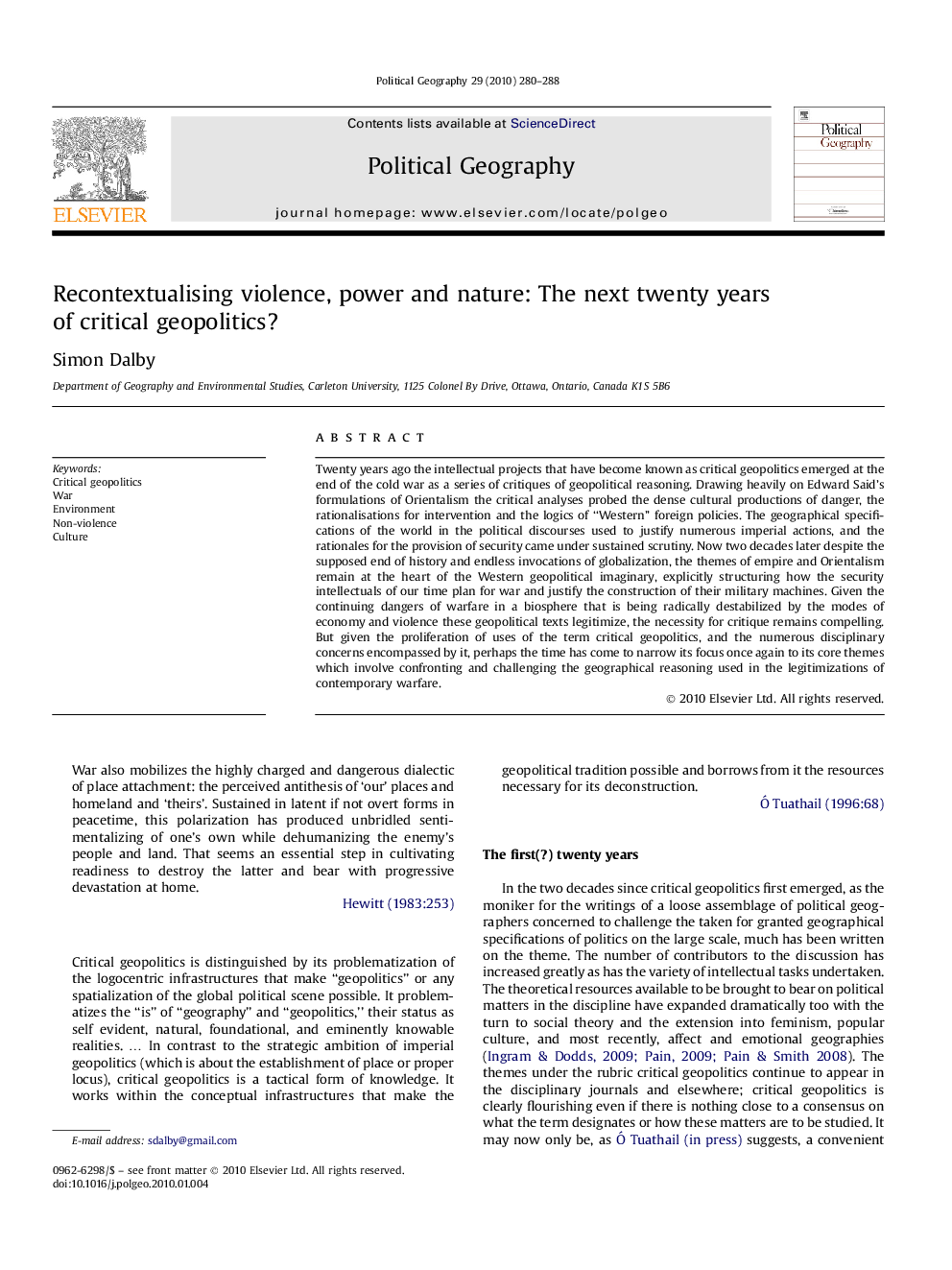| Article ID | Journal | Published Year | Pages | File Type |
|---|---|---|---|---|
| 1062242 | Political Geography | 2010 | 9 Pages |
Twenty years ago the intellectual projects that have become known as critical geopolitics emerged at the end of the cold war as a series of critiques of geopolitical reasoning. Drawing heavily on Edward Said's formulations of Orientalism the critical analyses probed the dense cultural productions of danger, the rationalisations for intervention and the logics of “Western” foreign policies. The geographical specifications of the world in the political discourses used to justify numerous imperial actions, and the rationales for the provision of security came under sustained scrutiny. Now two decades later despite the supposed end of history and endless invocations of globalization, the themes of empire and Orientalism remain at the heart of the Western geopolitical imaginary, explicitly structuring how the security intellectuals of our time plan for war and justify the construction of their military machines. Given the continuing dangers of warfare in a biosphere that is being radically destabilized by the modes of economy and violence these geopolitical texts legitimize, the necessity for critique remains compelling. But given the proliferation of uses of the term critical geopolitics, and the numerous disciplinary concerns encompassed by it, perhaps the time has come to narrow its focus once again to its core themes which involve confronting and challenging the geographical reasoning used in the legitimizations of contemporary warfare.
